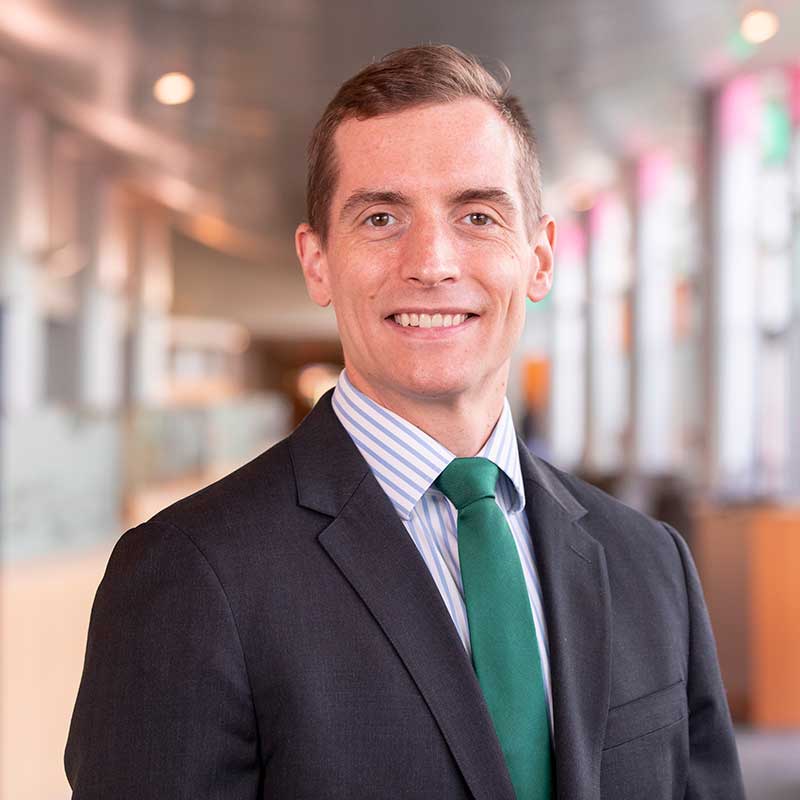Scott's Story - Diverticulitis Disease

For Scott, Driving 1,000 Miles for Colorectal Surgery Was Worth It
When his third episode of diverticulitis in three months landed him in the hospital for five days in Palm Beach, FL, Scott Pollard knew surgery was probably in his future. Scott trusted the physician who cared for him in Maryland and reached back out to Faisal Bhinder, MD, the gastroenterologist who had managed his diverticulitis for six years when he was living in Rockville. After telehealth visits with Dr. Bhinder and Matthew Skancke, MD, colorectal surgeon, Scott was so impressed he made the extraordinary decision to drive 1,000 miles to be treated by Dr. Skancke because of his expertise in robotic colorectal surgery.
What is diverticulitis? Diverticula are small, bulging pouches that can form in the lining of your digestive system, are common especially after age 40, and seldom cause problems. When one or more of the pouches becomes inflamed or in some cases infected, that condition is called diverticulitis, symptoms of which can include abdominal pain and tenderness, low-grade fever, loose stools, and bleeding with bowel movements.
“I never knew when another flare-up was going to happen and I would have to put my life on hold. When diverticulitis is severe, it feels like being kicked in the belly by a mule,” said Scott. “Often my pain was so bad that I couldn’t take walks or do simple tasks like going to the grocery store.”

“At Holy Cross Hospital everyone worked diligently to make sure I was comfortable,” said Scott who no longer lives in fear of having another diverticulitis attack.
When pouches become inflamed, they often can be treated with liquid or soft diets and antibiotics. But, as in Scott’s case when chronic inflammation occurs, there is a risk of perforation or abscess, and surgery to remove the affected part of the colon is indicated. “My job is to treat patients non-surgically, but then optimize their care when they need surgery,” said Dr. Bhinder.
“We refer our patients to colorectal surgeons based on their clinical outcomes, excellent patient interactions, and most importantly, for their expertise in robotic surgery. This is why we work closely with Dr. Skancke and his partners Bradley Bennett, MD, and Rami Makhoul, MD.”
“Dr. Skancke took a lot of time with me, not only talking about what to expect before and after surgery but getting to know me,” said Scott. “I could tell that he was not just a surgeon. He’s a caring person, too. Dr. Skancke was the reason I decided to come back to Holy Cross for my surgery.”
For someone like Scott who has multiple diverticulitis attacks, each episode can last a week or so, but the treatment and recovery can take up to two months for the inflammation to get better. “If you keep having frequent attacks, you can’t go to work or do things you want to do,” said Dr. Skancke. “If ignored, diverticulitis can lead to prolonged inflammation, which is destructive.”
“It’s better to choose surgery for diverticulitis at a time when it’s an elective procedure, rather than putting it off until it becomes an emergency,” added Dr. Bhinder. “After recovery from surgery, we recommend having a colonoscopy to exclude colon cancer, which can mimic diverticulitis symptoms.”
Right before his robotic colorectal surgery at Holy Cross Hospital, Scott recalled, “Dr. Skancke was very encouraging when he came in to talk to me. He was totally focused on making sure I knew what was going on and what my side effects might be — that meant a lot. In the operating room, as I was drifting off, a nurse held my hand and said, ‘Just relax. Everything is going to be okay.’ At Holy Cross Hospital everyone worked diligently to make sure I was comfortable.” (Presurgical screening at Holy Cross Health includes testing for COVID-19).
Dr. Skancke performed the operation using the da Vinci® XI robotic surgical system, the most advanced robotic platform available for colorectal surgery. Robotic surgery is minimally invasive, which results in less pain and faster recovery time for patients. Scott had five incisions the size of a dime and one 3 to 4 cm incision. Dr. Skancke removed the thickened portions of the colon that were most symptomatic and then reattached the colon to the rectum, maintaining normal bowel functioning.
Scott spent two days in the hospital and continued to stay in the area for a week to meet with Dr. Skancke for a post-surgery evaluation. Within a couple of days of surgery, Scott was able to eat regular food. “Previously after an attack, it would be weeks of not eating solid food,” said Scott. “Plus, I was living in fear, not knowing when another attack might come. I’ve been released from my fear, thanks to Dr. Skancke.”
Watch Holy Cross Health colorectal surgery experts, Bradley Bennett, MD, and Matthew Skancke, MD, discuss early screening, diagnosis, and treatment options for colorectal cancer.
Meeting the Healthcare Needs of Our Community
Holy Cross Health is proactively meeting the needs of our community by recruiting highly skilled surgeons like Dr. Matthew Skancke. Affiliated with Holy Cross Health Partners, Dr. Skancke is a fellowship-trained colon and rectal surgeon with special expertise in using the da Vinci® XI robotic surgery system. He sees patients alongside our colorectal program director and the team at Metro Colon and Rectal Surgery in Bethesda.
“I’m impressed with how progressive Holy Cross Health is, staying at the leading edge of surgical technology and expanding colorectal surgery care throughout our community,” said Dr. Skancke.
Ninety-five percent of colorectal surgery at Holy Cross is performed robotically, and together, Holy Cross Hospital and Holy Cross Germantown Hospital provide access to robotic surgery for individuals from Prince George’s County through Montgomery County and into Frederick County and are happy to serve anyone from the surrounding region.
“Patient care at both Holy Cross Germantown Hospital and Holy Cross Hospital is a true team effort,” said Dr. Skancke. “That makes a big difference in providing easier surgical experiences and quality outcomes for our patients.”
Through ongoing studies on community healthcare needs, Holy Cross Health identified a shortage of colorectal surgeons in Montgomery County. The addition of Dr. Skancke to our team is just one example of what Holy Cross is doing to make sure you have the care you need today — and in the future when we open our new Holy Cross Health Cancer Center in spring 2022.

Matthew Skancke, MD
Colorectal Surgery
Holy Cross Health Partners
